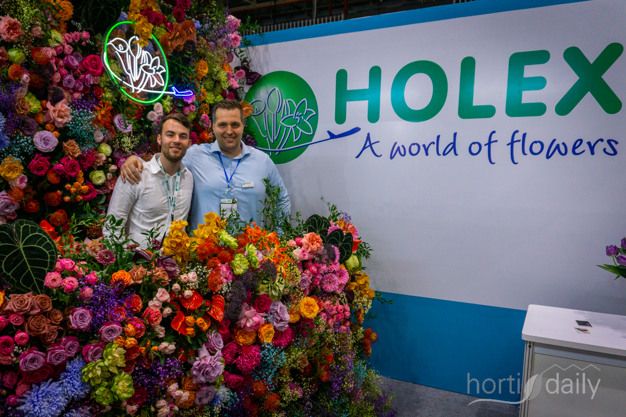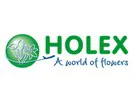That bouquet of roses consumers purchase no matter where they are in the world originates from Europe, Africa, or South America, oftentimes. Yet, there's another country that flies under the radar and yet it's producing a vast amount of flowers, namely China. "The potential is huge, and we see significant opportunities. Next to China, we also see good opportunities in the Middle East."
We spoke with Bob van Vianen and Robin de Vos from Holex Flowers earlier this year at Hortex in Vietnam. The exporter has long maintained a sales office and distribution center in Shanghai and is now also making inroads in Yunnan, where the vast majority of Chinese flower production and trade occurs. "A major advantage of the Chinese market is the abundant production of various products that are less available or not available at all in the Netherlands at certain times of the year. Because we see steady demand from the Middle East, we hope to be able to respond better to it this way."
 Jim Schoneveld and Robin de Vos, Holex Flowers
Jim Schoneveld and Robin de Vos, Holex Flowers
In its infancy
Chinese production is mainly aimed at the domestic market, with very little export. As for the Middle East, there's hardly any trade. There are 3x weekly direct flights from Kunming to Dubai. From other Chinese cities, we can also reach customers in Saudi Arabia, Qatar, and other Middle Eastern countries. Additionally, a number of Chinese companies are trying to establish lines from the Middle East.
It can be said that this trade has not really taken off yet. "This has mainly to do with quality. Traditional varieties and practices are adhered to since there's no focus on export. In lilies, for example, bulbs are constantly reused, which is a no-go in the Netherlands."
Building trust
Holex aims to elevate that quality. "In the Netherlands, everything is graded. That means each stem has a length, a weight, and possibly a certain number of buds. In China, it's by the kilo. You buy a bundle, and that's it. You never know what you're buying, and to ensure there are standards and comparable criteria and having a Chinese grower on board with this is the big challenge."
A first and essential step is to win trust, they explain. "For a while now, we've been using the slogan 'Connecting Continents' not without a reason. We're active in all markets, we do business worldwide, and we are a large and reliable player. If we can convince a grower that we can do something with his product if it meets certain quality standards, then it's a win-win. But it's not easy. Growers want to make fast money, and if they can sell the whole batch now for 1000 euros or two hours later for 1100 to three different buyers, they usually go for the first option. The low valuation of the product drives this mentality: Chinese flowers need to be especially cheap, and this really needs to change."
Pioneering
And it can change, because all the ingredients for success are there. Although the lion's share of production occurs in plastic tunnels, the country's climate and geography offer everything needed. Around Kunming, located at about 1900 meters, a lot of production takes place, but also further northeast in the province (about 700 kilometers away), in Lijiang, which is even higher at 2400 meters. Even further, production continues at 2700 and 2800 meters, and other regions, such as Guangzhou and the island of Hainan, also boast a diverse assortment.
"Our goal is to ultimately establish a stable business throughout the year, and we are now assessing whether this is feasible. We need to conduct a lot of tests and gather data. In the coming months, we hope to come up with more concrete results. It might be futile, or we might need more time, but the demand is there, and so is the product. In that sense, we only need to connect the dots."
Holex will be participating in the IPM Beijing from May 23-25, at booth W1A046.
 For more information:
For more information:
Robin de Vos
GM Holex Kunming
[email protected]
Bob van Vianen
Sales manager Holex Flower BV
[email protected]
